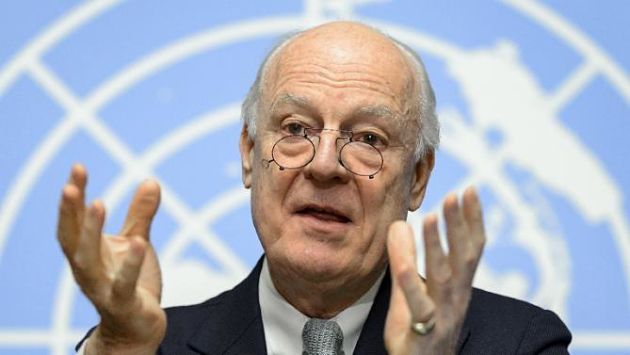Many have already rushed to predict the success of the Berlin Conference on Libya, scheduled for the day after tomorrow, despite the fact that it was announced only this week and that the civil war in that country has been going on for several years.
And how could it be otherwise when not only the main internal Libyan sides of the conflict – the Government of National Accord of Fayez al-Sarraj and the Libyan National Army of Khalifa Haftar – have agreed to participate, but also the foreign powers that support them: Turkey, Russia, and the EU and the US for company.
Yes, one would like to believe that this time the reconciliatory international initiative will be successful. But unfortunately, the experience of previous projects of this kind does not inspire much optimism.
The first thing that comes to mind, of course, is the so-called Geneva process of Syrian settlement, which was carried out with great pomp and with the participation of the same international actors. And it ended with its UN curator, Staffan de Mistura (pictured raising his hands), finally having to admit that the Geneva process was dead.
Why did this happen? Because while politicians and diplomats were meeting in countless roundtables within its framework, the military was doing its job. And unfortunately, the latter did it much more successfully than the former, namely the military of one of the sides – the Assad regime, supported by Tehran and Moscow. And as soon as they achieved their goals, they simply forgot about this process and began to ignore it.
The Berlin Congress theoretically has more chances. First of all, this is due to the approximate balance of power – both military and political. We have already written many times about the main problem of the Syrian opposition supported by Turkey, which was its disunity and its political and legal illegitimacy in the sense that it was not represented by a single body that positioned itself as the voice of the whole of Free Syria.
In Libya, similar forces managed to unite and gain international recognition for this unity – the Government of National Accord – as the legitimate authority of the country. And this significantly increases their chances of not repeating the fate of their Syrian colleagues.
But of course, in a civil war, where the question of power is primarily resolved from the position of force, any representativeness and legitimacy will be powerless if they are unable to defend themselves. So far, the GNA has managed to stay afloat, and the ceasefire declared in Moscow has raised hopes that the question of power will be resolved by political and diplomatic means rather than military ones.
However, Khalifa Haftar, like Bashar al-Assad, has repeatedly demonstrated that he will resort to the use of force at the first opportunity when he feels he has the upper hand. Therefore, the recent statement by Turkish President Recep Tayyip Erdogan about sending Turkish troops to Libya to support the GNA is an extremely important step. As the characters in westerns used to say, “A kind word and a gun is better than just a kind word”. If we follow this principle, the Berlin Congress has a chance not to repeat the fate of the Geneva process.

